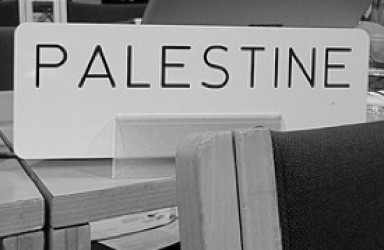The efficacy and moral considerations of negotiating with terrorist groups, violent militias and mercenaries
Whether the ends justify the means is an impossible question to answer decisively. How unpalatable are the means and how desirable the ends? There is no definitive rulebook on how violent organisations such as Hamas need to be handled. Each example illustrates a different dynamic that requires a different response.
Political Economy of Human Rights: The Quest for Relevance and Realization
Advancing human rights to the level of global justice requires more than the current circus of councils, commissions, and committees with tedious documents deliberated in lengthy meetings. Coming closer to people in their daily pursuit of liberties and livelihoods is the most productive perspective for progress in the 21st century.
The Trial Will Not Be Televised: Mubarak and the Struggle for Power in the ‘New Egypt’
It is no small irony that while Egypt’s ‘new’ leadership is being lauded for making sure the Mubarak trial is not being rushed through a military court where standards of proof are lower and pressures on the defense can be higher, pro-democracy activists and protesters are being dragged through those same military courts in ever-greater numbers.
Contractors in the “War on Terror”: Enabling Global Military Deployment
What has begun as the “War on Terror” and is now a series of “overseas contingency operations” could in fact only go on in the global fashion that it did for almost ten years now because of the services provided by several hundred thousand contractors. In short, private contractors serve as enablers of this decade-old war, much like they have become enablers of most major Western militaries.
Assisting refugees in protracted refugee situations: A never-ending story?
The kind of assistance a refugee really needs is the right to work, to own property, to move freely and to participate in political processes. A short-term focus on the current humanitarian crisis in Dadaab needs to be accompanied by a recognition of the fact that those who live in the refugee camps face a protracted humanitarian crisis.
Palestine and the UN: The Recognition Debate
Palestine now only requires a two-thirds majority in the General Assembly, or 129 votes, to be admitted as the 194th member of the United Nations. The long conflict between Israel and Palestine has shed enough blood. It is high time that the international community worked to support the peaceful future of two sovereign states.
Premature Adulation in Sudan
On July 9th diplomats celebrated the birth of Africa’s newest country, South Sudan, like over-stimulated toddlers at a party. The media followed suit, with trivial and sometimes patronising stories about the new national anthem and flag, and the admittedly strange plan to create cities in the shapes of African animals. Sadly, those involved should have focused on the agenda items they failed to address before sending out the independence day invitations.
The Foreign Policy Impact of Privatized Intelligence
America is the only industrialized power that does not use its state intelligence apparatus to steal commercially valuable information on behalf of its domestic companies. What is happening today is that many US based firms are awakening to the advantages that their overseas rivals have gained from intelligence and adopting these practices themselves to fight back.
The Politics of Famine in the Horn of Africa
It is time the U.S. and other governments took a more nuanced approach to politics in the Horn of Africa and followed the lead of international aid agencies on the ground in dealing with local leaders and communities, rather than seeking to impose a top-down central government. The solution to famine in East Africa lies in employment-generating development. It will not offer an instant fix, but it’s a start.
THE TEA PARTY SAVES DEFENSE
The intransigence of the Tea Party Republicans during the recent US debt ceiling negotiations has apparently saved the US defense budget from deep cuts that had seemed almost certain a month ago. The negotiations pushed a full agreement onto a special legislative committee which is to report in the fall.













